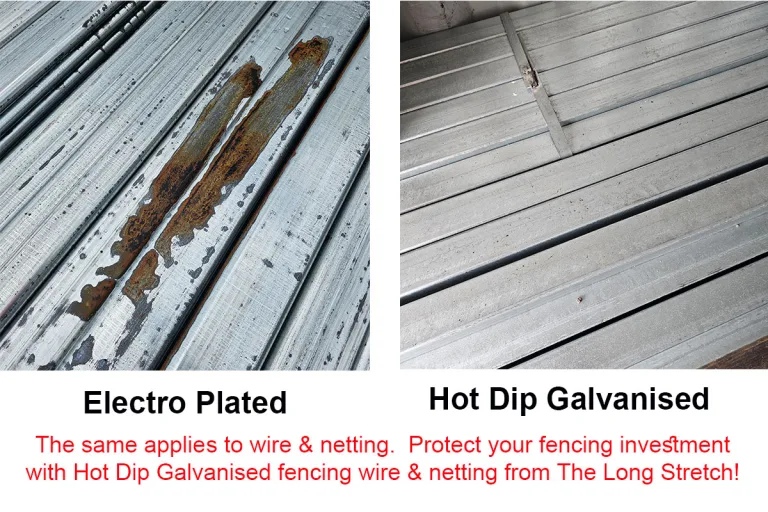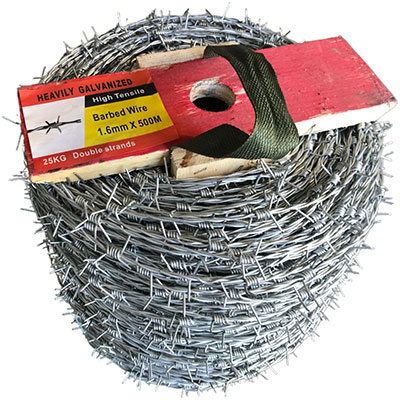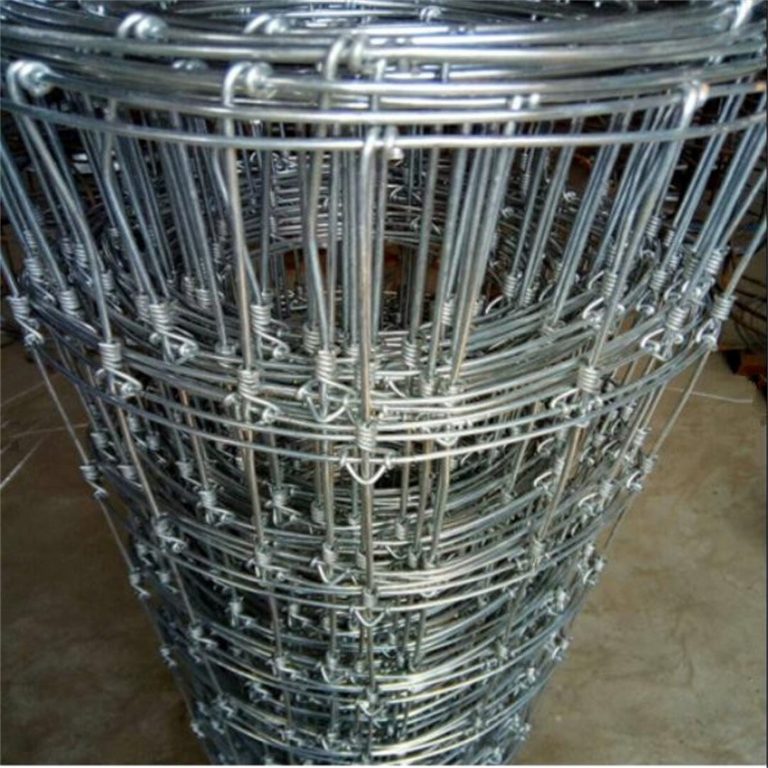The Versatile Strength of Plain 8-Gauge Fencing Wire: A Comprehensive Guide
Fencing is an essential aspect of agriculture, security, and property management. Whether you’re a farmer looking to protect livestock, a homeowner securing your backyard, or a contractor reinforcing boundaries, choosing the right fencing material is crucial. Among the many options available, plain 8-gauge fencing wire stands out as a reliable and versatile choice.
Click To View ProductWhat is it?
Plain 8-gauge fencing wire refers to a strong, uncoated, or galvanized steel wire with a thickness of 8-gauge (approximately 0.162 inches or 4.11 mm in diameter). It is widely used for various applications, from farm fencing and vineyard trellises to industrial security barriers and DIY projects.
This type of wire is known for its durability, strength, and affordability, making it a staple in fencing projects across multiple industries.
Characteristics of Plain 8-Gauge Fencing Wire
1. High Tensile Strength
One of the most significant advantages of 8-gauge fencing wire is its high tensile strength, which makes it ideal for withstanding tension and external forces. This property ensures that the wire remains sturdy and effective, even under pressure from livestock, wind, or environmental stressors.
2. Corrosion Resistance
While plain 8-gauge fencing wire is available in both uncoated and galvanized varieties, many users opt for the galvanised version to enhance corrosion resistance. Galvanisation involves coating the wire with a layer of zinc, preventing rust and extending its lifespan, especially in humid or wet climates.
3. Versatility in Application
This fencing wire is widely used in agriculture, construction, landscaping, and security applications. Some of the most common uses include:
- Livestock fencing: Keeps animals contained and predators out.
- Garden protection: Prevents pests from invading crops and plants.
- Vineyard trellises: Supports grapevines and other climbing plants.
- Security barriers: Reinforces perimeters for added protection.
- DIY projects: Used for crafting, home repairs, and industrial applications.
4. Ease of Installation and Maintenance
Despite its sturdy nature, plain 8-gauge fencing wire is relatively easy to install. It can be strung between fence posts, stretched tightly for tensioned fencing, or twisted for additional security. Regular maintenance, such as checking for tension and ensuring proper anchoring, keeps the wire functional for years.
Benefits of Using Plain 8-Gauge Fencing Wire
1. Cost-Effective Solution
Compared to other fencing materials like wooden panels or chain-link fences, 8-gauge wire is more affordable while offering comparable durability. It is an excellent option for large-scale fencing projects without breaking the budget.
2. Durable and Long-Lasting
With proper installation and maintenance, plain 8-gauge fencing wire can last for decades, especially when galvanized. This durability ensures that property owners get the best return on investment.
3. Minimal Environmental Impact
Unlike synthetic or plastic fencing alternatives, steel wire is recyclable. At the end of its lifespan, it can be repurposed or melted down for reuse, making it a sustainable fencing choice.
4. High Customization Options
Users can adjust the height, spacing, and tension of the wire to meet specific needs. Whether constructing a tall security barrier or a low livestock fence, 8-gauge wire provides flexibility in design and application.
Installation Tips for 8-Gauge Fencing Wire
To maximize the efficiency and longevity of your fencing project, consider the following installation tips:
1. Choose the Right Fence Posts
- Use wooden, steel, or concrete posts based on the terrain and intended use.
- Spacing between posts should be 2 to 3 metres apart for optimal support.
2. Tensioning the Wire Properly
- Use fence strainers or tensioners to ensure a tight and secure fit.
- Over-tensioning may lead to wire breakage, while under-tensioning may cause sagging.
3. Securing the Wire
- Use staples or clips to attach the wire firmly to fence posts.
- For added security, consider wrapping or twisting the wire at anchor points.
4. Preventing Rust and Corrosion
- If using plain (non-galvanised) wire, apply a rust-resistant coating or paint.
- Regularly inspect for signs of corrosion and replace affected sections promptly.
Common Questions
Q: Can 8-gauge fencing wire be electrified?
A: Yes, 8-gauge fencing wire is commonly used for electric fencing systems. It conducts electricity well, making it an effective deterrent for livestock control and security.
Q: How does 8-gauge wire compare to other gauges?
A: Wire gauge indicates thickness, with lower numbers representing thicker wires. Compared to 10-gauge or 12-gauge wire, 8-gauge is thicker, stronger, and more durable, making it better suited for heavy-duty applications.
Q: What is the weight capacity of 8-gauge fencing wire?
A: The weight capacity depends on the wire’s material and tensile strength, but generally, 8-gauge wire can support hundreds of pounds, making it ideal for tensioned fencing and structural applications.
Final Thoughts
Plain 8-gauge fencing wire is an excellent choice for those seeking strength, durability, and versatility in fencing solutions. Whether securing farmland, protecting property, or building functional enclosures, its affordability and reliability make it a go-to option for professionals and DIYers alike. With proper installation and maintenance, this type of fencing wire provides long-lasting protection and peace of mind.
For anyone looking to start a fencing project, understanding the advantages of 8-gauge fencing wire ensures you make an informed decision—one that balances cost, strength, and durability for your specific needs.





